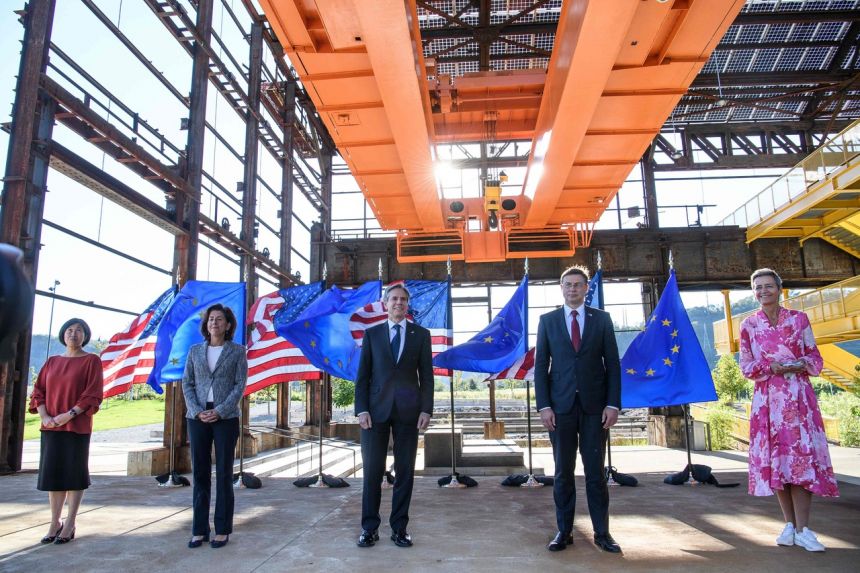On Wednesday, the United States and the European Union agreed to strengthen transatlantic cooperation in order to improve semiconductor supply chains, restrain China’s non-market trading practices, and take a more coordinated approach to regulate large, global technology enterprises.
Senior cabinet officials from both continents pledged to cooperate on investment screening, export controls for critical dual-use technologies, and artificial intelligence development at the launch of a new forum, the US-EU Trade and Technology Council (TTC) (AI).
The statement did not mention China but said: “We stand together in continuing to protect our businesses, consumers, and workers from unfair trade practices, in particular those posed by non-market economies, that are undermining the world trading system.”
In its approach to China, the Biden administration has maintained tariffs imposed by former US President Donald Trump but has worked to distinguish itself by engaging more with allies.
Secretary of State Antony Blinken, Secretary of Commerce Gina Raimondo, US Trade Representative Katherine Tai, EU Trade Commissioner Valdis Dombrovskis, and European Commissioner for Competition Margrethe Vestager oversaw the meetings.
They met within a rusting skeleton of a former steel rolling mill covered with solar panels, a symbol of Pittsburgh’s post-industrial revival as a tech hub, in a robotics and AI technology development facility.
The conference was nearly interrupted by French outrage at the United States’ decision to sell nuclear submarines to Australia earlier this month, prompting Canberra to cancel a $40 billion submarine contract with France.
The US and EU governments, on the other hand, backed a joint declaration to strengthen semiconductor supply chains, focusing first on easing short-term supply bottlenecks and then on identifying longer-term vulnerabilities and “strengthening our domestic semiconductor ecosystems, from research to design to manufacturing, with a view to improving resilience.”
They promised to avoid a subsidy competition in order to attract chip investments and instead seek “the correct incentives.”
A second TTC meeting was not specified in the statement, but EU officials said it would most likely take place in Europe in the spring of 2022.












